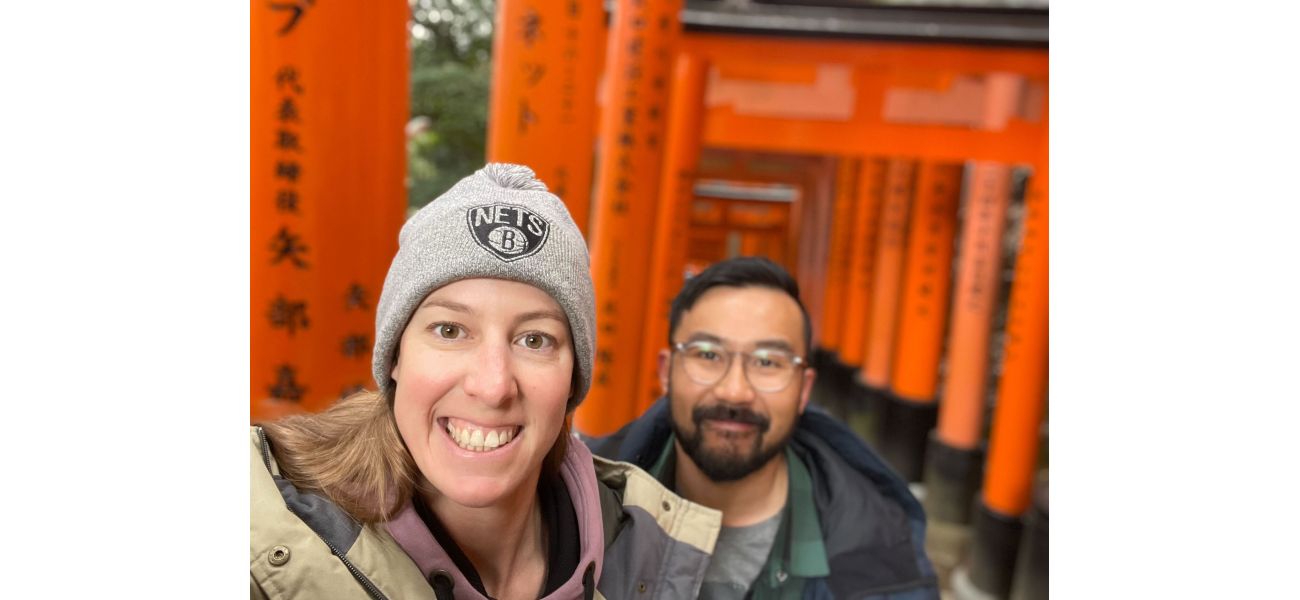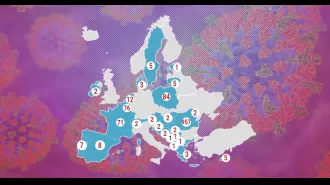Ashleigh, a nine-year nurse, cannot afford a mortgage.
32-year-old in Newcastle, NSW is concerned about rent and can't afford a mortgage on their state's award pay rates.
October 15th 2024.

Ashleigh Clarke has been working as a nurse for almost a decade now, but despite her years of experience and dedication to her job, the thought of being able to afford her own house still seems like a far-fetched dream. At 32 years old, she resides in Newcastle, New South Wales, and is constantly plagued by the stress of paying rent. The current pay rates in the state make it impossible for her to even consider taking out a mortgage. Unfortunately, Clarke is not alone in this struggle. Many of her colleagues are also facing financial strain, highlighting the harsh reality of how Australian healthcare workers are being excluded from the housing and rental market.
Clarke's worries about low pay and the dwindling possibility of owning a home are unfortunately not unique. Recent data from Anglicare Australia has revealed that the country's housing crisis has left countless essential workers, such as nurses, aged care and ambulance workers, unable to afford rent. In an interview with 9news.com.au, Clarke shared her own experience, stating, "If I was to seek another [affordable] rental in this current climate or pursue a mortgage, that's out of my reach." She also mentioned that despite considering a mortgage with her and her partner's combined incomes, it still remains unattainable. The exorbitant prices of mortgages, especially in areas closer to her workplace in Maitland, are simply out of their reach.
Anglicare's Rental Affordability Snapshot report analyzed 45,115 rental listings in March 2024 and found that only 2.2% of them were affordable for the average ambulance worker. Similarly, only 1.5% were within reach for aged care workers and a mere 1.4% for nurses. The report also revealed that early childhood workers and construction workers had even less options, with only 0.9% of the available rentals being affordable for their average wages. The instability of rent is also a major concern for healthcare workers like Clarke, who shared, "You could be given notice and kicked out tomorrow. If that were to happen, I would be extremely stressed about finding a new place to live."
The lack of wage growth in New South Wales has left many nurses feeling frustrated and betrayed, including Clarke. As a delegate for the NSW Nurses and Midwives' Association, she is actively advocating for a 15% wage increase, along with her colleagues in the industry. It was found that NSW nurses and midwives are currently receiving wages from 2008, adjusted for inflation. "They called us heroes during COVID, but they can't even give us a pay rise," Clarke expressed. She also highlighted the unfairness of her job, stating that she often does the work of two nurses in a day, yet her pay remains the same. On the other hand, she pointed out that even if a CEO of a company doesn't show up for work, they still get paid.
A survey conducted by the NSWNMA shed light on the housing insecurity within the healthcare industry. It was found that half of all nurses and midwives surveyed in NSW were renting. The housing advocacy report also revealed that 47% of respondents were worried about losing their place to live, and 60% were experiencing rental stress, which is defined as spending more than 30% of their income on rent. In light of these findings, Anglicare's report urgently calls for the government to increase social housing so that all Australian healthcare workers can have an affordable place to call home. Kasy Chambers, the executive director of Anglicare Australia, stated, "It should be a national scandal that so few of our essential workers can afford to keep a roof over their head. Our Snapshot shows that more and more essential workers are being pushed into serious rental stress – and pushed out of their own communities. Virtually no part of Australia is affordable for aged care workers, early childhood educators, cleaners, nurses, and many other essential workers we rely on. It's no wonder so many critical industries are facing worker shortages."
Clarke's worries about low pay and the dwindling possibility of owning a home are unfortunately not unique. Recent data from Anglicare Australia has revealed that the country's housing crisis has left countless essential workers, such as nurses, aged care and ambulance workers, unable to afford rent. In an interview with 9news.com.au, Clarke shared her own experience, stating, "If I was to seek another [affordable] rental in this current climate or pursue a mortgage, that's out of my reach." She also mentioned that despite considering a mortgage with her and her partner's combined incomes, it still remains unattainable. The exorbitant prices of mortgages, especially in areas closer to her workplace in Maitland, are simply out of their reach.
Anglicare's Rental Affordability Snapshot report analyzed 45,115 rental listings in March 2024 and found that only 2.2% of them were affordable for the average ambulance worker. Similarly, only 1.5% were within reach for aged care workers and a mere 1.4% for nurses. The report also revealed that early childhood workers and construction workers had even less options, with only 0.9% of the available rentals being affordable for their average wages. The instability of rent is also a major concern for healthcare workers like Clarke, who shared, "You could be given notice and kicked out tomorrow. If that were to happen, I would be extremely stressed about finding a new place to live."
The lack of wage growth in New South Wales has left many nurses feeling frustrated and betrayed, including Clarke. As a delegate for the NSW Nurses and Midwives' Association, she is actively advocating for a 15% wage increase, along with her colleagues in the industry. It was found that NSW nurses and midwives are currently receiving wages from 2008, adjusted for inflation. "They called us heroes during COVID, but they can't even give us a pay rise," Clarke expressed. She also highlighted the unfairness of her job, stating that she often does the work of two nurses in a day, yet her pay remains the same. On the other hand, she pointed out that even if a CEO of a company doesn't show up for work, they still get paid.
A survey conducted by the NSWNMA shed light on the housing insecurity within the healthcare industry. It was found that half of all nurses and midwives surveyed in NSW were renting. The housing advocacy report also revealed that 47% of respondents were worried about losing their place to live, and 60% were experiencing rental stress, which is defined as spending more than 30% of their income on rent. In light of these findings, Anglicare's report urgently calls for the government to increase social housing so that all Australian healthcare workers can have an affordable place to call home. Kasy Chambers, the executive director of Anglicare Australia, stated, "It should be a national scandal that so few of our essential workers can afford to keep a roof over their head. Our Snapshot shows that more and more essential workers are being pushed into serious rental stress – and pushed out of their own communities. Virtually no part of Australia is affordable for aged care workers, early childhood educators, cleaners, nurses, and many other essential workers we rely on. It's no wonder so many critical industries are facing worker shortages."
[This article has been trending online recently and has been generated with AI. Your feed is customized.]
[Generative AI is experimental.]
0
0
Submit Comment





